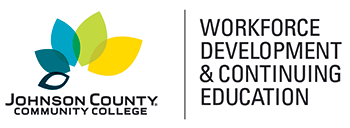Online
help
Learning at your own pace, or facilitated by an instructor
Handling Medical Emergencies
What You Will Learn
If a member of your family suffered a medical emergency, you could certainly call for trained emergency medical responders, but what would you do while you're waiting for them to arrive? Every second counts during a medical emergency.
Recognizing the early signs and symptoms of common medical conditions and providing appropriate treatment can mean a better outcome for the patient and can greatly reduce the seriousness of the illness, which means a shorter hospital stay and lower medical costs. It's also very satisfying to know how to help someone in a time of need.
Online
help
Learning at your own pace, or facilitated by an instructor
$169.00
Handling Medical Emergencies
Selected Course
Dates: 1/14/2026 - 3/6/2026
Course type: Personal Health and Wellness
Times:
Location: Online Campus Map
Contact Hours:
Course Code: PERSHEALTH-90920260114
Category: Personal Health and Wellness
Contact Hours: 24.0
Format: Online
Schedule Details:
After registering for this course, you can come back to the catalog to register for more courses.
Issues with registering? Please contact us at CERegistration@jccc.edu or call 913-469-2323.
Similar Courses
Online Registration Temporarily Down
Please contact us at ceregistration@jccc.edu or call 913-469-2323 to register now or please visit us later.
CloseIntroduction to Medical Emergencies
Every day, thousands of medical emergencies occur in the United States. In your first lesson, you will learn what happens when someone dials 911 to report the emergency. You will see how emergency 911 operators do their jobs, who will respond to the emergency, and what will happen after emergency medical services personnel arrive at the scene. Then, you will start learning the human body, so you will know why your organs work like they do.
The Initial Assessment
This lesson teaches you how to make sure you stay safe at the scene of an emergency—from watching out for traffic and identifying hazards, to protecting yourself from transmitted diseases. Then, you will learn the ABCs of emergency care, so you will know what steps to take in order to help someone in need. Also, you will see how to take a reading of a patient's respiration and pulse to determine if the heart and lungs are working normally.
Heart Disease and Heart Attack
Heart disease is the leading cause of death for adults in the USA. In this lesson, you will learn what causes heart disease and how you and your family can prevent it from happening to yourselves. You will learn the difference between angina and heart attacks, and why you may not want to go to the closest hospital if you suspect your family member is having heart problems.
Respiratory Illness and Disease
Would you know what to do if your child suddenly choked on a small toy or piece of food? This lesson addresses choking and breathing problems, the leading causes of accidental deaths in children. You will also learn about asthma, emphysema, pneumonia, and carbon monoxide poisoning.
Head and Brain Injuries
This lesson focuses on the body's master organ—the brain. You will learn about concussions, head injuries, seizures, and strokes. You will see how the pupils of the eyes give you important information about brain function, and how to recognize the signs of a stroke, one of the most common events leading to adult disability.
Bleeding and Burns
Do you know what the largest organ of the body is? Surprise—it's your skin. This lesson goes over what happens when you injure your skin—whether you've scraped, cut, torn, punctured, or burned it. You will also learn how to recognize the signs of bleeding, even if the bleeding is internal and out of your sight. You will see how to stop all types of bleeding and how to treat all types of burns, including electrical, chemical, thermal, and even severe sunburns.
The Nine Types of Shock
In this lesson, you will learn all about shock—not the electrical kind, but the type that prevents oxygen from getting to your body's cells. You will learn how to recognize and treat shock caused by infections, allergic reactions, bleeding, breathing problems, diabetes, heart problems, spinal injuries, and simple fainting. You will also see what to look for to determine if an unconscious person has a chronic medical problem, with no one around to tell you about it.
Medical and Environmental Emergencies
This lesson goes into underlying medical problems such as diabetes, gallstones, hepatitis, appendicitis, and kidney stones. You will also learn about heat and cold emergencies, from heat exhaustion and heat stroke to frostbite and hypothermia. And you will find out what's happening if your patient's eyeballs look yellow.
Managing Poisoning
Almost 3 million children are victims of accidental poisoning each year. In this lesson, you will learn how poisoning occurs—how it gets into a child's body through absorption, inhalation, ingestion, or injection. You will see why poison control centers have been established throughout the country and how you can reach one using a single phone number. Most important, you will learn what to do and what not to do before medical help arrives at your house.
Fractures and Sports Injuries
This lesson focuses on injuries to the bones and joints. You will learn about fractures, sprains, and strains, as well as how to handle neck and back injuries without causing further harm to your patient. You will learn how to use common items to make splints to stabilize an arm or leg until help arrives. You will also learn about athletic trainers and the roles they serve in organized team sports.
Child Development and Specific Injuries
Children aren't just little adults. In this lesson, you will learn how children react to injury and illness, and how you can interact with them during the various stages they go through as they grow up. You will learn the differences in their anatomy as they get bigger, how their vital signs chang
Online
help
Learning at your own pace, or facilitated by an instructor
Handling Medical Emergencies
| DATE | TIME | DAY | PRICE | AVAILABILITY | LOCATION | |
| 1/14/2026 - 3/6/2026 | $169.00 | 99 Seats Open | Online Campus Map |
Register |
Online
help
Learning at your own pace, or facilitated by an instructor
$169.00
Handling Medical Emergencies
Selected Course
Dates: 1/14/2026 - 3/6/2026
Course type: Personal Health and Wellness
Times:
Location: Online Campus Map
Contact Hours:
Course Code: PERSHEALTH-90920260114
Category: Personal Health and Wellness
Contact Hours: 24.0
Format: Online
Schedule Details:
After registering for this course, you can come back to the catalog to register for more courses.
Issues with registering? Please contact us at CERegistration@jccc.edu or call 913-469-2323.



